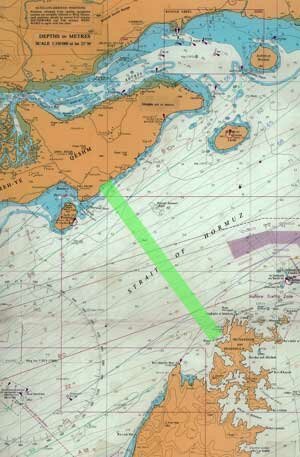|
News | Iran Travels | Iran Professional Services | About | Contact | Discussion Forum | Archive |
|
HAMSAYEH.NET |
| IRAN & INTERNATIONAL NEWS | CONTACT | ABOUT |
|
|
Iran Capable of Closing the Strait of Hormuz: Senior MP | ||
|
|
|||
|
If the Strait of Hormuz is closed, which is a practical thing to happen, 62 percent of the world energy will be kept away from them.
Tehran, April 27, 2010 (Hamsayeh.Net) - A senior Iranian Member of Parliament warned of additional consequences if extraterritorial powers sought to impose a naval blockade of Iran through the misleading cover of a UN sanction.
The prominent MP Parviz Sarvari, a member of the parliament National Security and Foreign Policy Commission told reporters that Iran possesses the capability to block the Starit of Hormuz. Such an action might follow as a tactic to fight back against naval blockade of Iran under a UN sanction regime, he explained.
Since the world and particularly Western industrial countries depend on oil and gas passed through the Strait of Hormuz, its long-term closure would deal a major blow to modern civilization following the WWII reconstruction efforts. Like a heart constantly pumping blood inside a metabolism, closure of an artery could lead to a heart stroke and perhaps a sudden death.
‘If the Strait of Hormuz is closed, which is a practical thing to happen, 62 percent of the world energy will be kept away from them. In this case the world economy will face a big problem,’ the MP reiterated.
Iranian naval forces have recently test-fired highly accurate missiles capable of sinking large vessels with high degree of accuracy. The sinking of even one large vessel would be enough to cause major problems for all the tankers passing through the strait of Hormuz every day. |
The strait at its narrowest is 54 kilometres (29 nmi) wide. It is the only sea passage to the open ocean for large areas of the petroleum-exporting Persian Gulf. According to the U.S. Energy Information Administration, an average of about 15 tankers carrying 16.5 to 17 million barrels of crude oil normally pass through the strait every day, making it one of the world's most strategically important choke points. This represents 40% of the world's seaborne oil shipments, and 20% of all world shipments.
|
||
Disclaimer: Opinions expressed on this site are solely Hamsayeh.Net’s own and do not represent any official institutions’, bodies’, organizations’ etc. Similarly, Hamsayeh.Net
would not be responsible for any other opinions that may be expressed therein by other sources through direct or indirect quotations.


